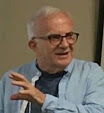This is Christmas.
A shimmering, snow-covered,
winter wonderland
A picturesque village
Children skating, dogs barking,
A warm home,
Good food,
abundant, savory, filling, delicious
food
Waiting for the family to gather
Surrounded by family and friends
Tree trimmed and lighted
Stockings stuffed and hanging
Presents wrapped and waiting
Chocolate everywhere
Favorite football teams running
across
Wide screen high-def screens
This is Christmas.

A quaint New England church
Bell ringing
People gathering
Greeting each other
The sanctuary filled with worshipers
wrapped in warm clothing
Candles flickering
Choirs singing
Young people reading
the ancient story
once more…
Sumptuous music
filling the airways
Rudolph, Frosty, and Bing's White Christmas
Renaissance songs and medieval chant
Drummer boys and Calypso beats
Bells ringing and coins clanging in
kettles
Carolers singing to homebound friends
Marimba, cello, violin, solo, choir and organ
All
of this is Christmas.
Telephone conversations with friends
and family far away
Notes and cards and Christmas letters
Messages and photos text-ed
Status-es, links and videos post-ed
Tweets and sweets abounding
So connected now
So many friends
(some I never met)
So much goodwill
This, too, is it Christmas.
Children underfoot
Impatient, eager and filled with expectation
Memories too of my children when they
were children
And my childhood too
Cookies and milk for Santa
The Lionel train that whistled
beneath the tree
endlessly blowing smoke over the lighted houses of Plastic-ville
Grandmothers and grandfathers
uncles aunts and cousins
so many that Christmas always took two weeks
Mother and Dad now gone
Cousins too,
so far away in
miles and years and memories
And this is Christmas.
Elegant and primitive nativity scenes
And living ones too -
Outside, in winter,
With smelly mules and sheep and cows in dirty straw
Mannequin angels suspended overhead
Joseph and Mary and the shepherds
and wise
men shivering in the cold
The plastic baby Jesus wrapped in beautiful
rags
and uttering not a sound
Perhaps here is the
meaning of Christmas.
Or does it have to do with
Soldiers in barracks and foxholes
In planes above
In submarines below
In outposts and command centers
and hospitals too,
And their families anxious or proud
waiting for their
safe return
And some families, grieving
And some soldiers learning to walk
again
And some without sight or hearing
And some with other disabilities
And villagers too, and city dwellers
In Iraq, Syria and Afghanistan
Egypt, Somalia and Nigeria
Jerusalem, Ramallah and Mogadishu
Ferguson, and south Chicago too
Caught in endless crossfire
Hands up, don't shoot
Homes and neighborhoods destroyed
livelihoods threatened
Fearful of strangers
Fearful of neighbors
Fearful even of us…
Is this Christmas?
Children in Liberia,
orphaned, fending for themselves
Young men and women in Juarez and Medellín
But also DesPlaines, Arlington
Heights
and Barrington
Trying to free themselves
from unspeakable burdens
People sleeping in the hallways of
O’Hare
Sharing the meager food they possess
Beggars hawking newspapers at Olgvie,
at the corner of Madison
and State
Hustlers and hopeless behind prison bars
and those
imprisoned by their addictions.
What is Christmas for
them?
Firefighters, police officers and
rescue workers
living with the disabilities of their heroic deeds
Firefighters, security personnel,
pilots,
Diplomats, aid workers and healthcare
providers
paramedics, physicians and nurses
and so many more
on duty this very night
away from home, away from family
so that home and family
and others will be
safe.
Where is their
Christmas celebration?
Is it the recollection of a birth,
even a sacred birth,
2,000 years ago?
Is it the celebration of a promise made
when the world was fresh
with possibilities?
Did it take place long ago
in a little town called Bethlehem
to Mary and Joseph, to shepherds, magi and angels?
(And to Herod, Pilate and and other less savory characters?)
Was Christmas then, or is it now?
Did it happen long ago?
May it happen tonight?
Is this a moment in sacred time?
Will it give birth to us?
What is Christmas?
Christmas is a sacred opening
through which God births each of us
and names our ancient destiny:
With Mary, we are called to be
God-bearers
in our world today.
With Joseph we are called to protect
all that is holy and fragile.
With the shepherds we are invited to
bow low
before the wonder of the commonplace.
With the magi we are summoned to
follow faithfully,
trusting God to lead us aright.
With the angels we are called to herald good news
of great love for the earth and everything upon it.
With all the inhabitants of ancient
Bethlehem
we are summoned to join
the poor, the meek, and those who grieve,
to take our places among
those who hunger and thirst for righteousness,
and those who simply hunger and thirst,
those who are merciful and pure in heart,
and those who work
for peace upon the earth.
This is Christmas:
When we hear the summons,
when we answer the call,
when God’s spirit comes upon us,
when Christ’s truth becomes our
truth,
when God’s love flows through us
without inhibition.
Then we will know the meaning of this
night.
Then we will see even in ourselves this babe in Bethlehem:
A lowly Child whom the ages call
Wonderful Counselor,
Prince of Peace.
This, I believe, is Christmas.















